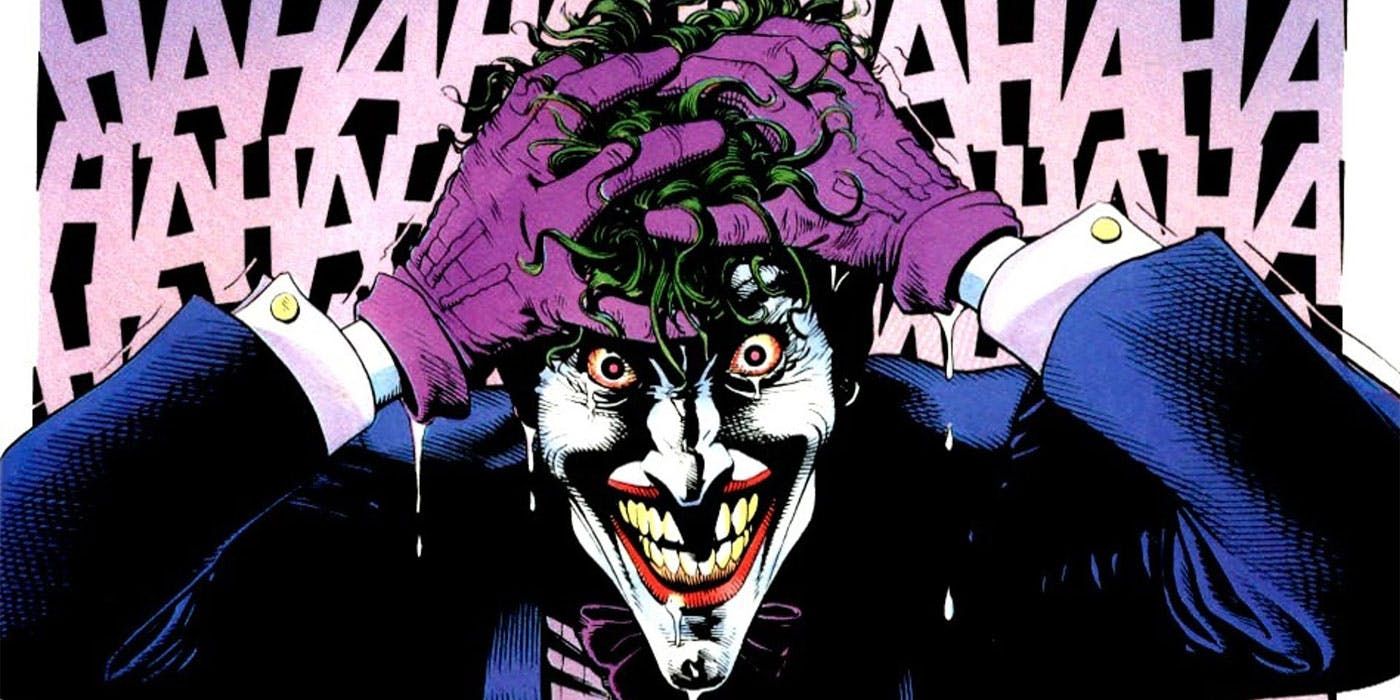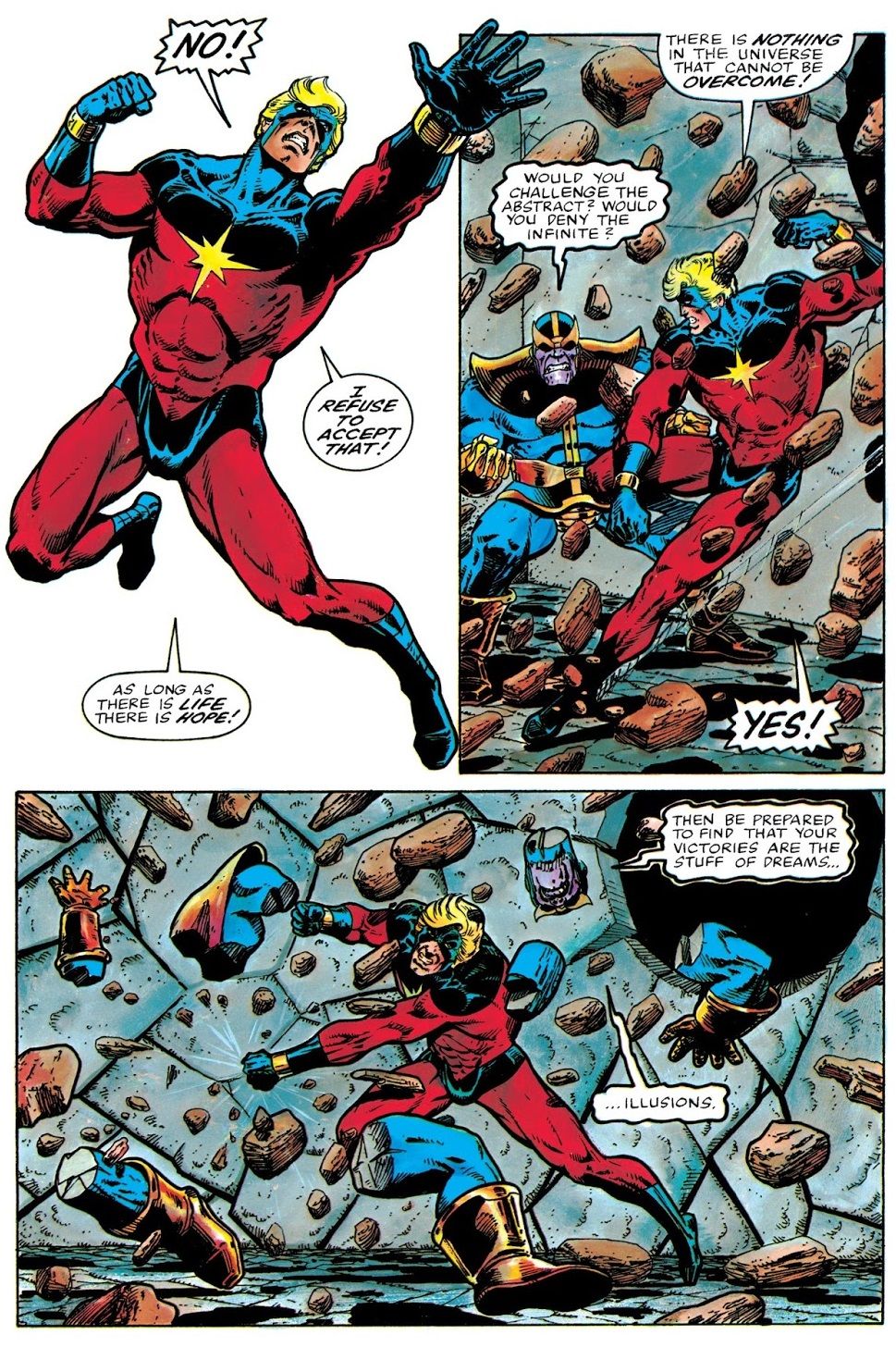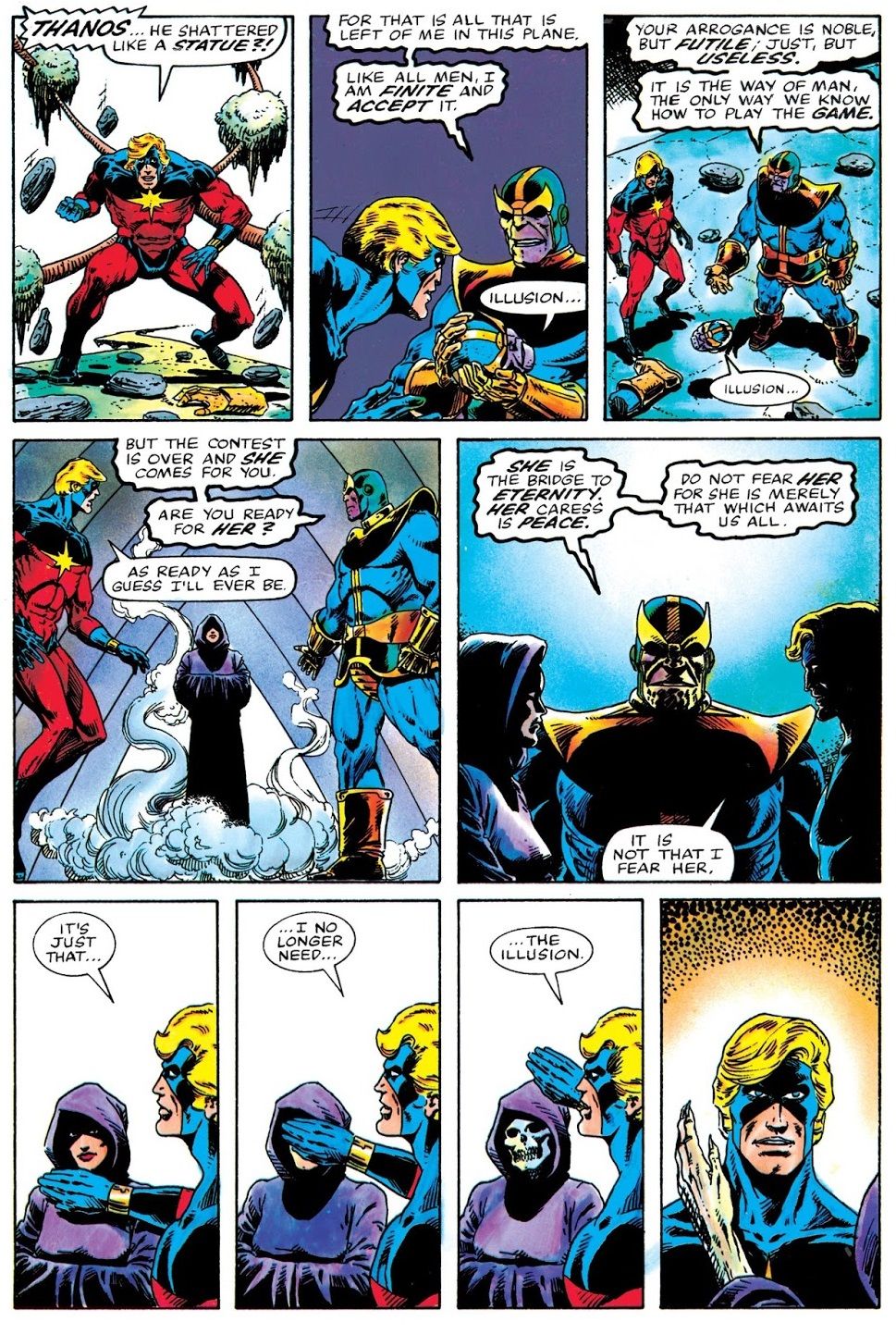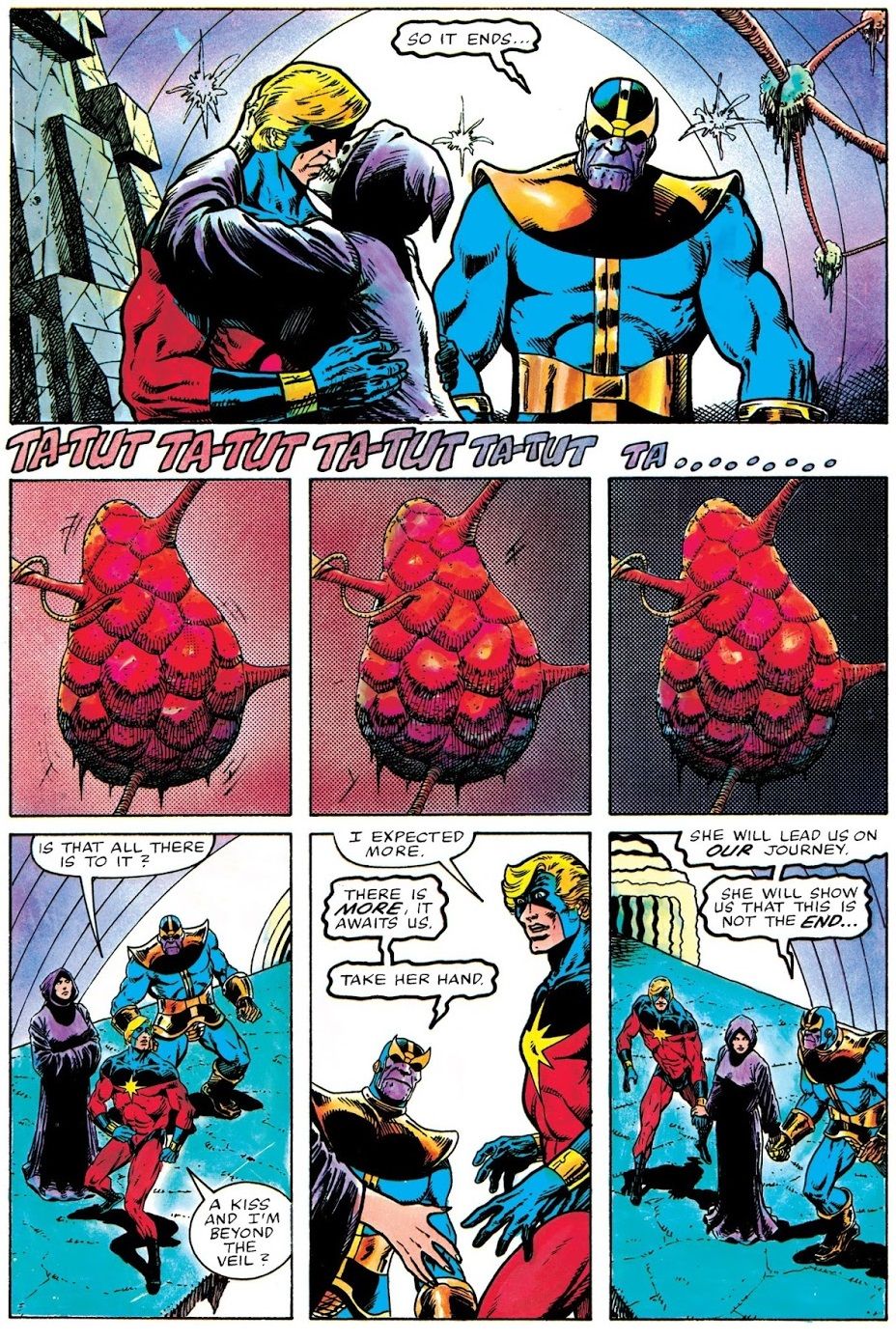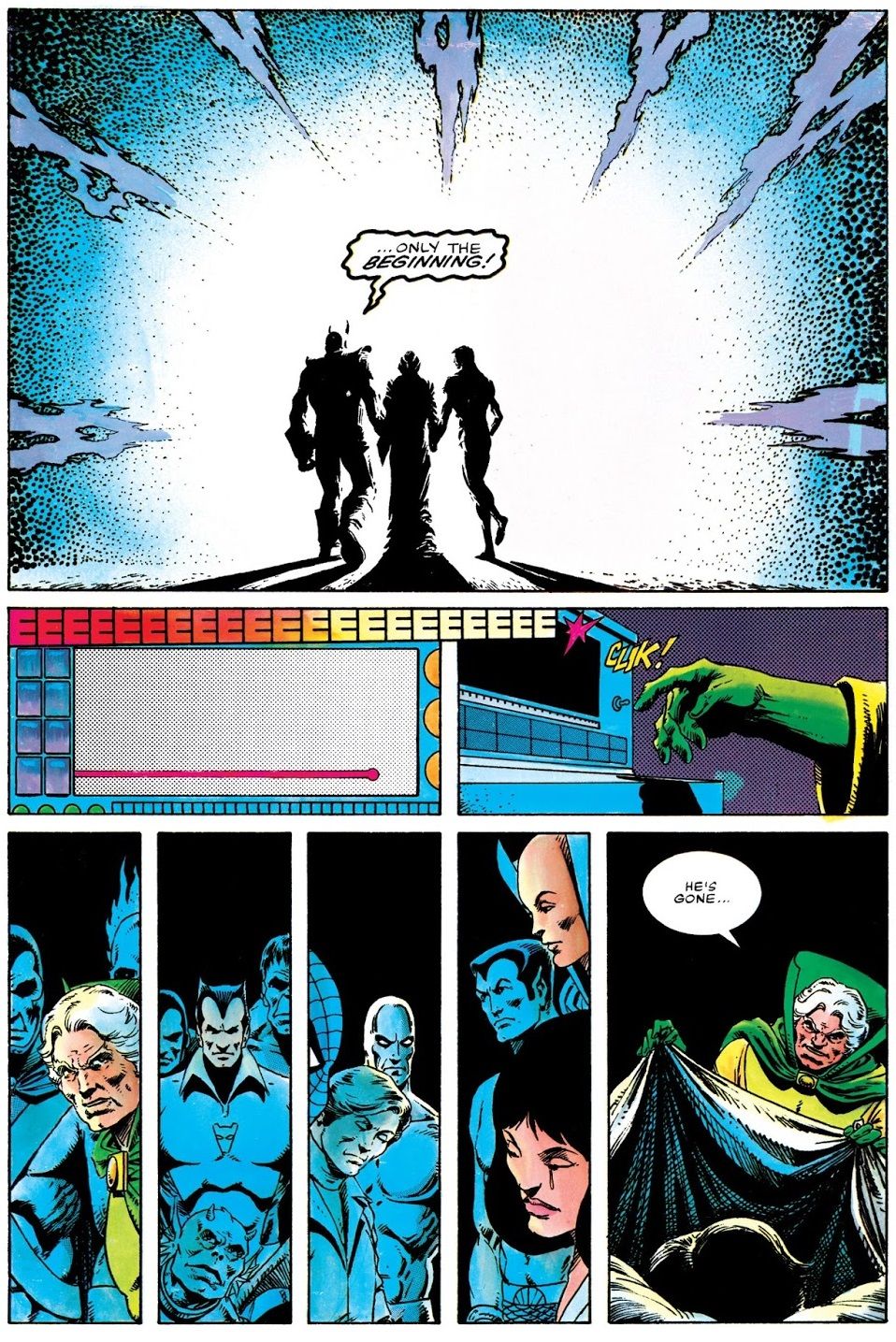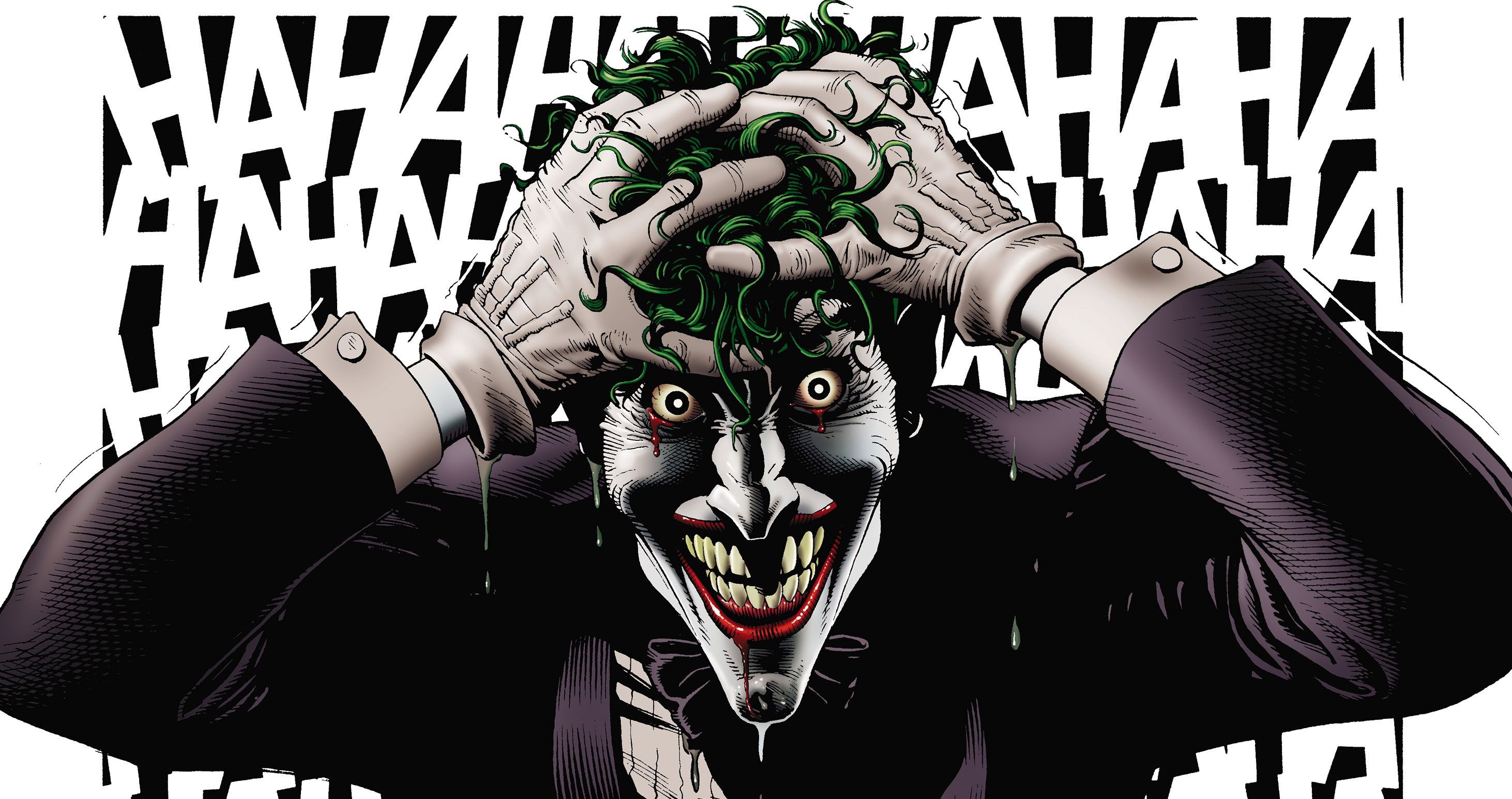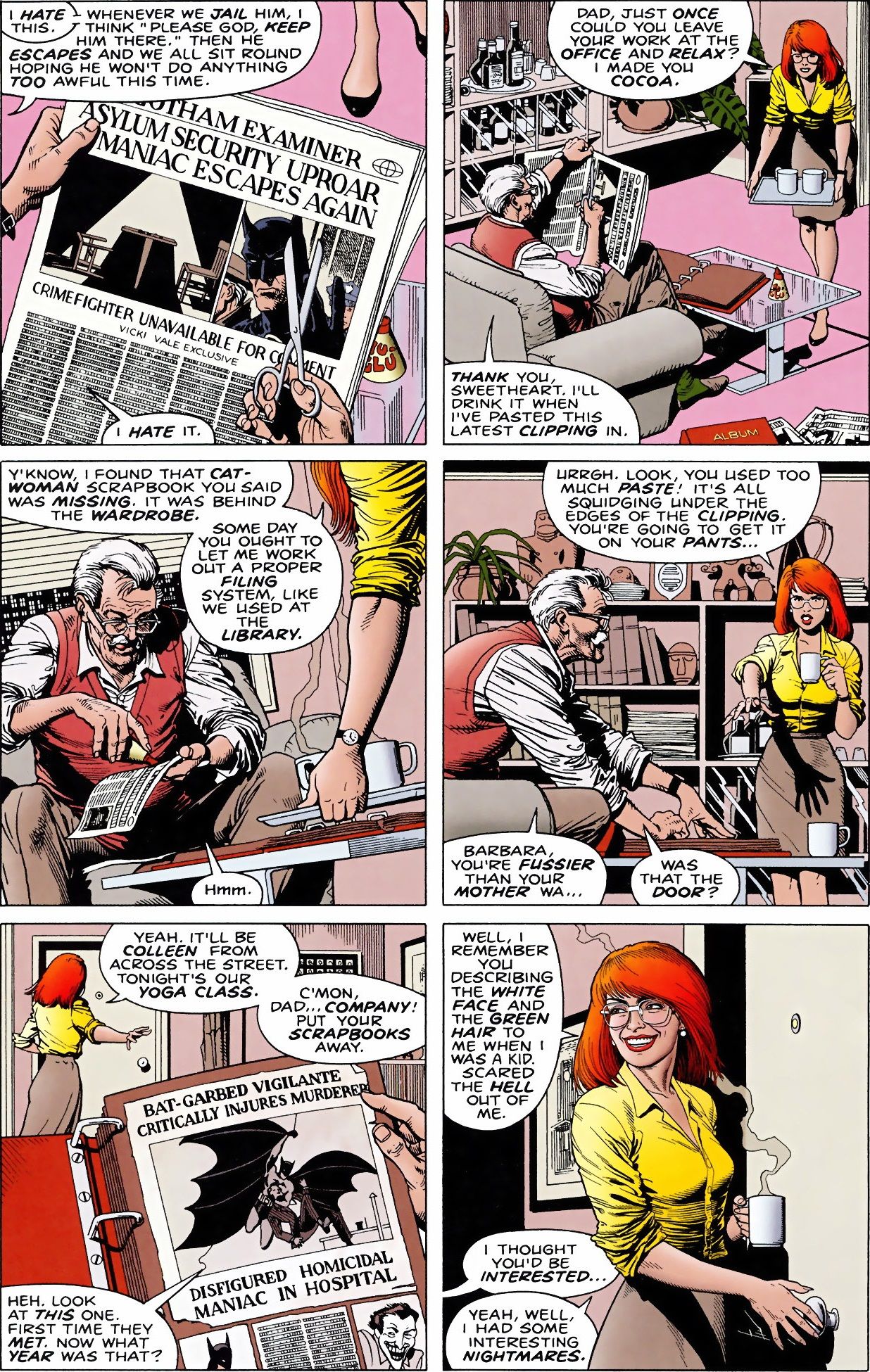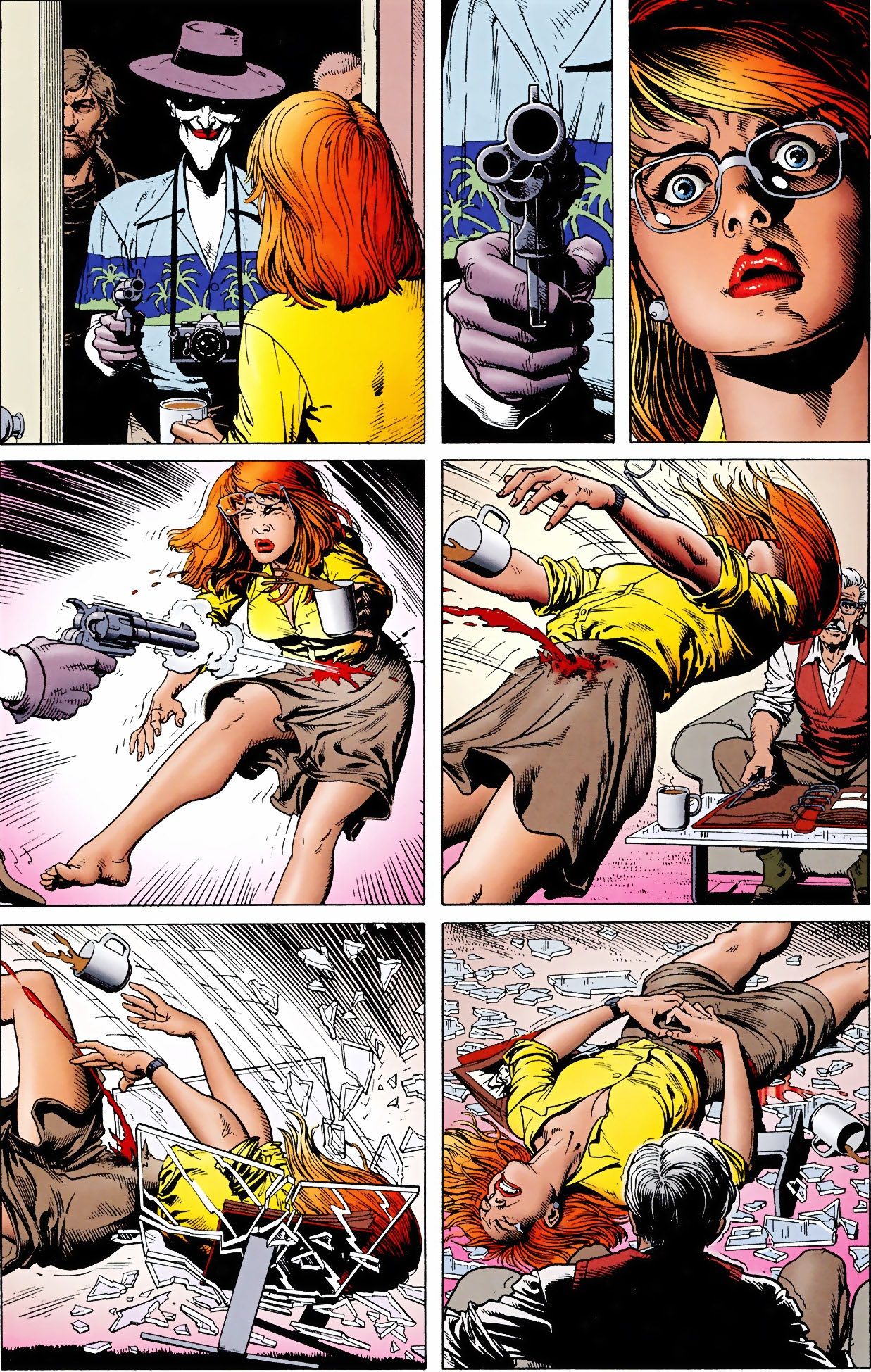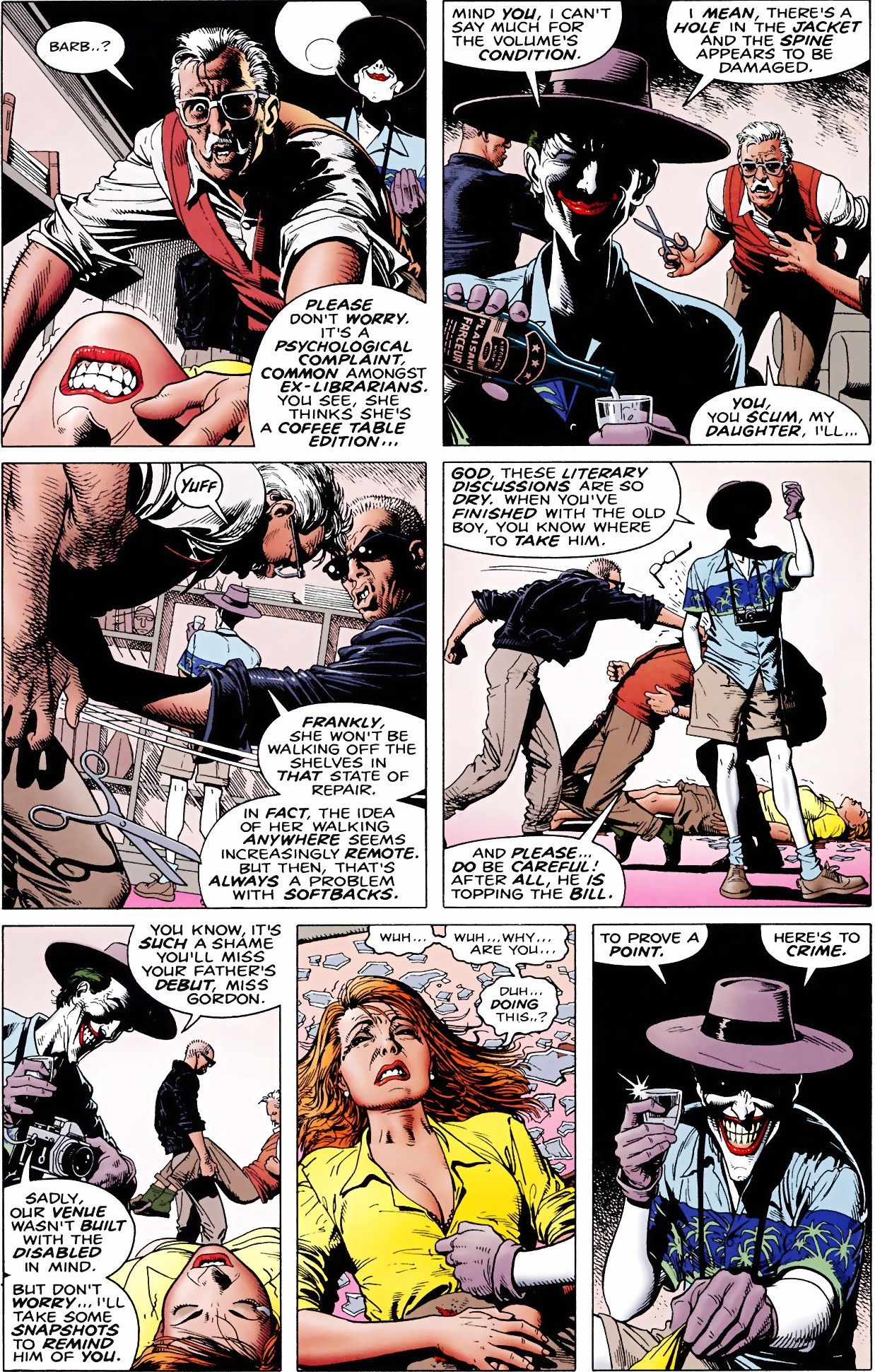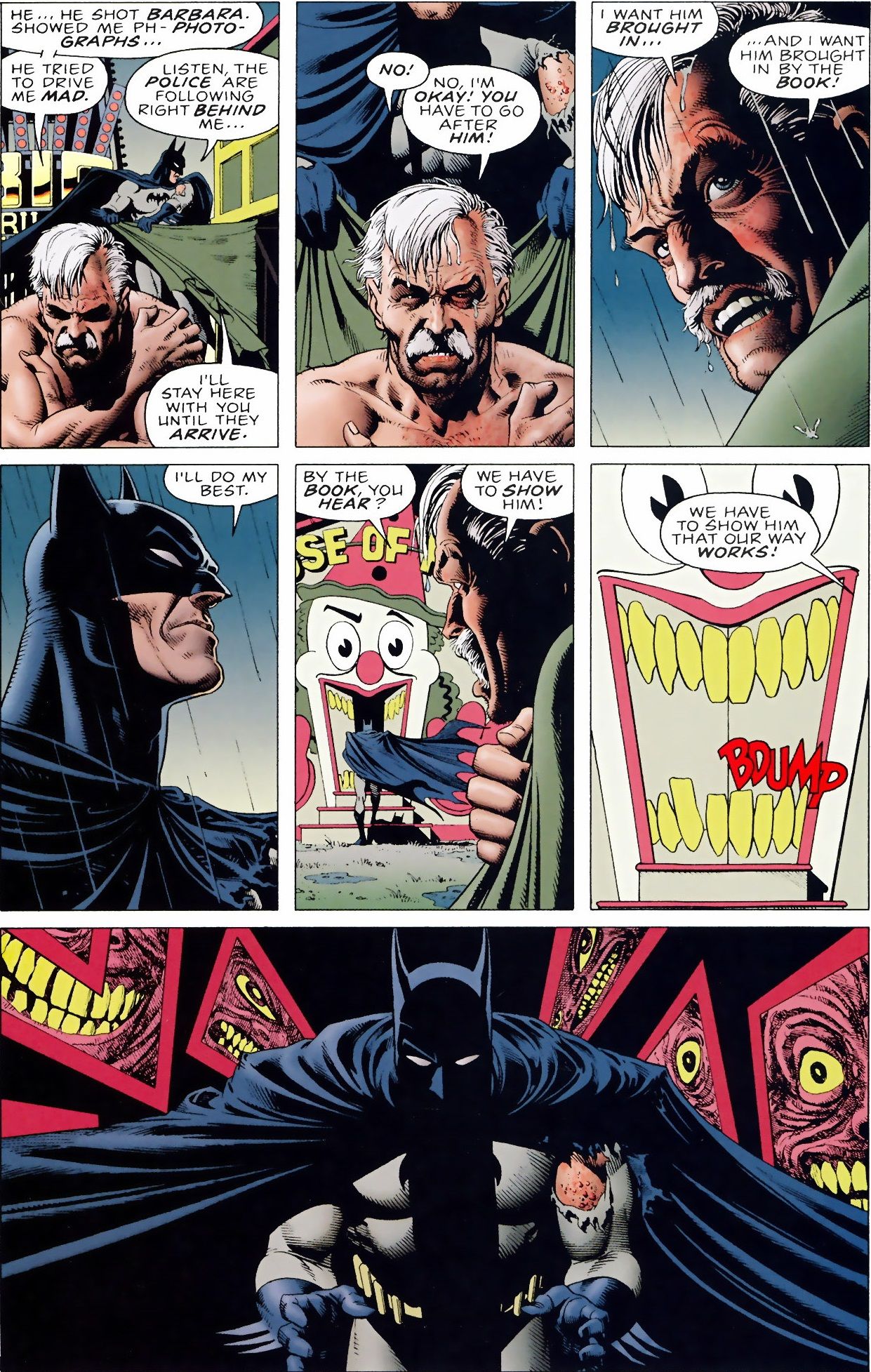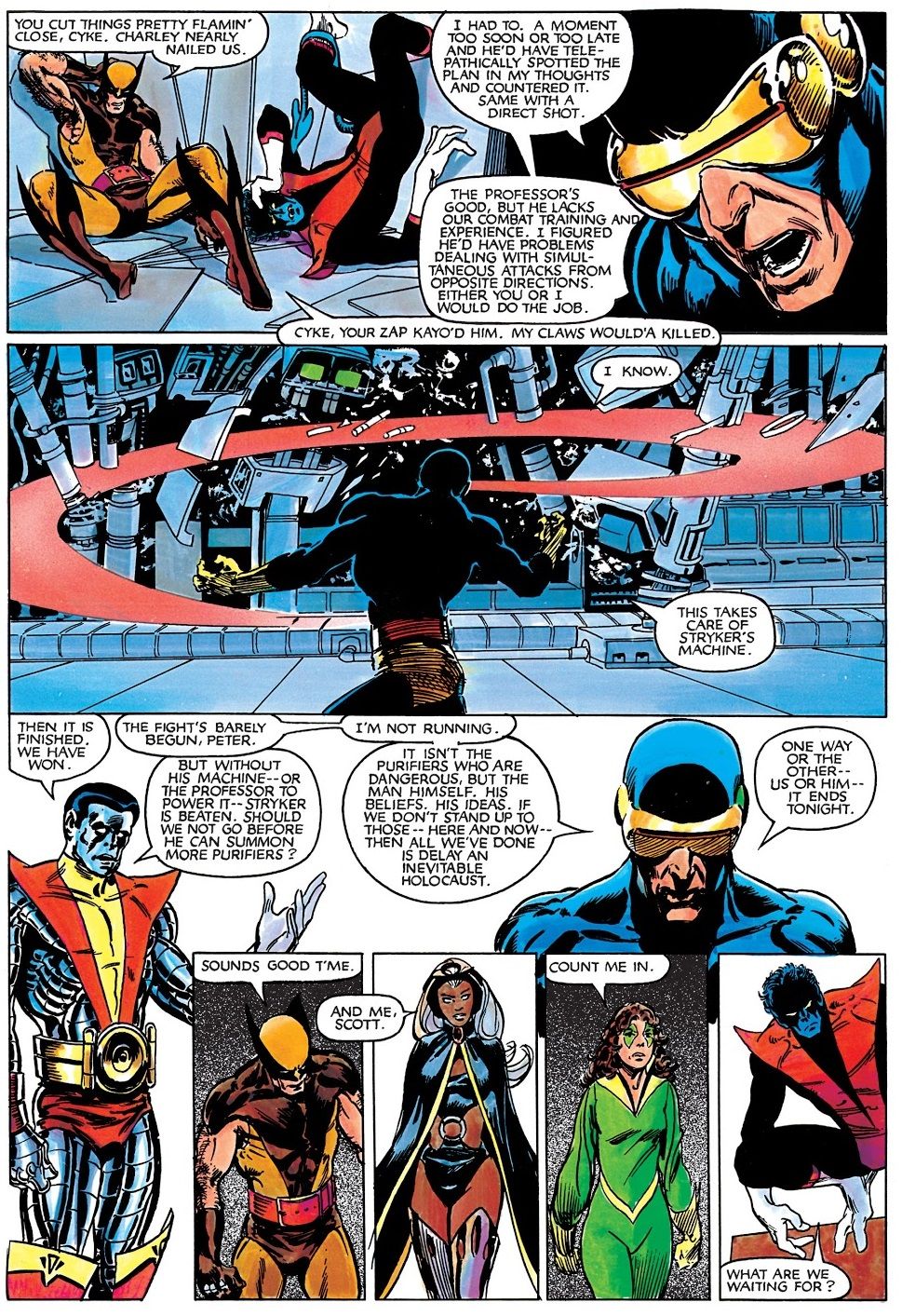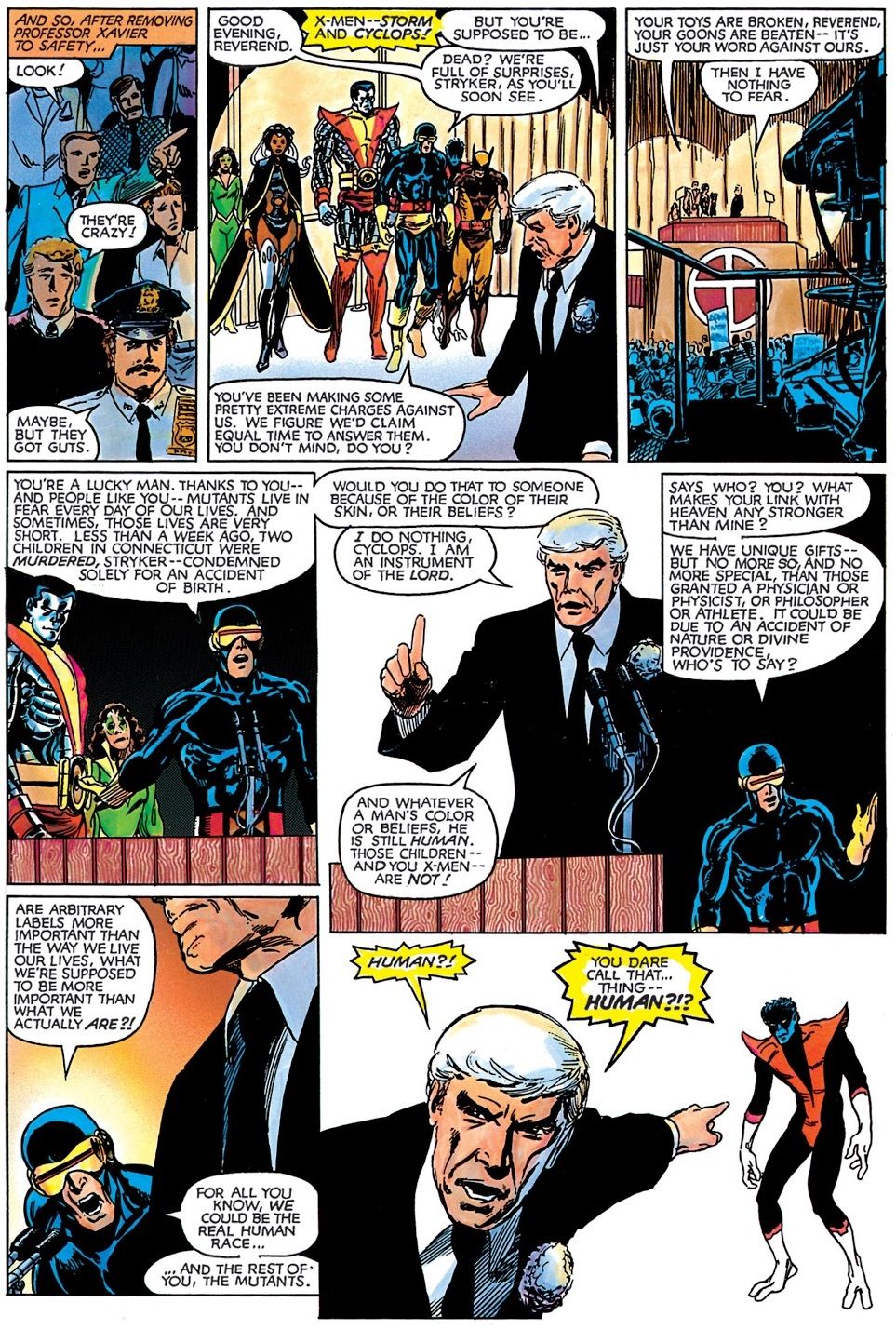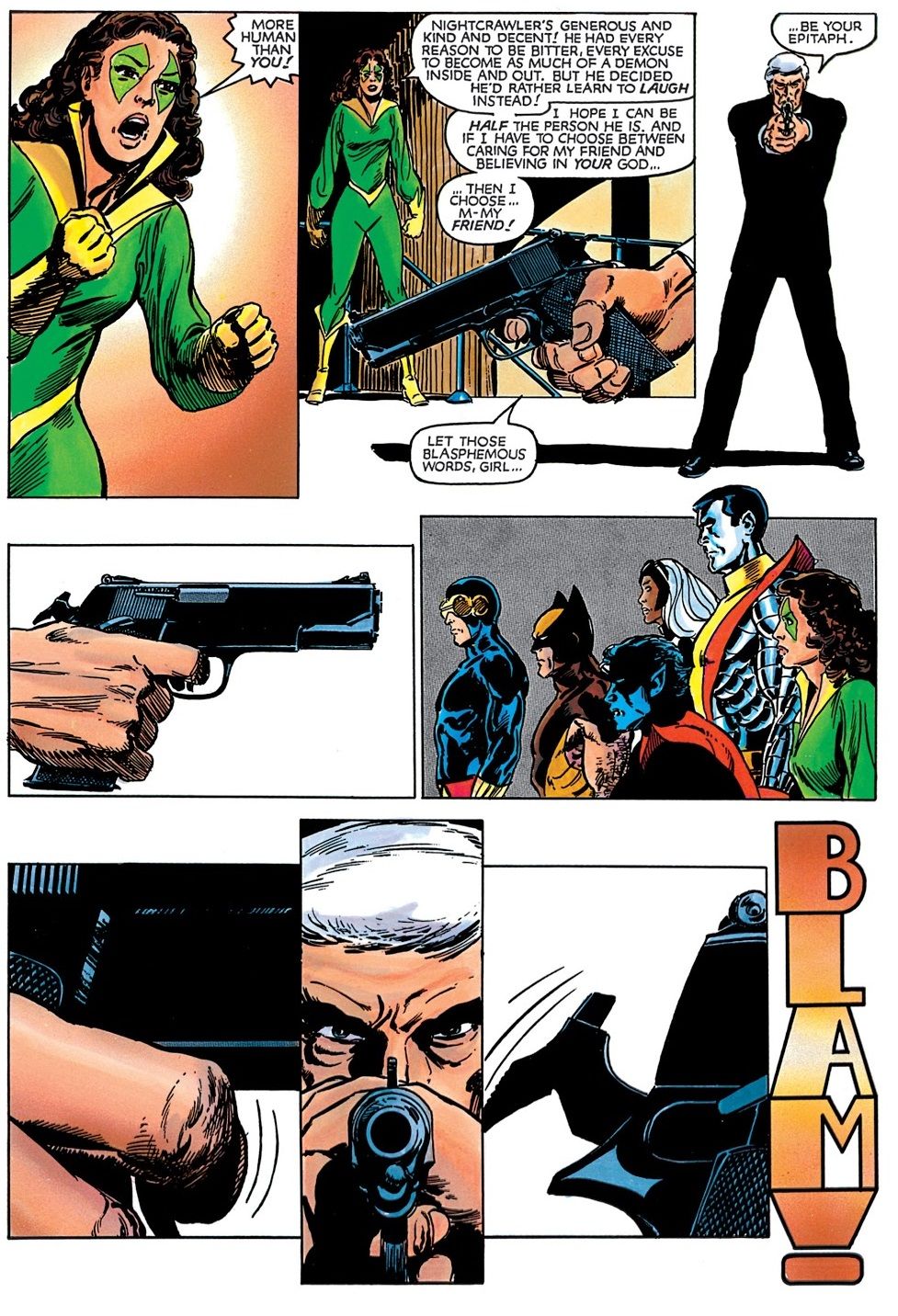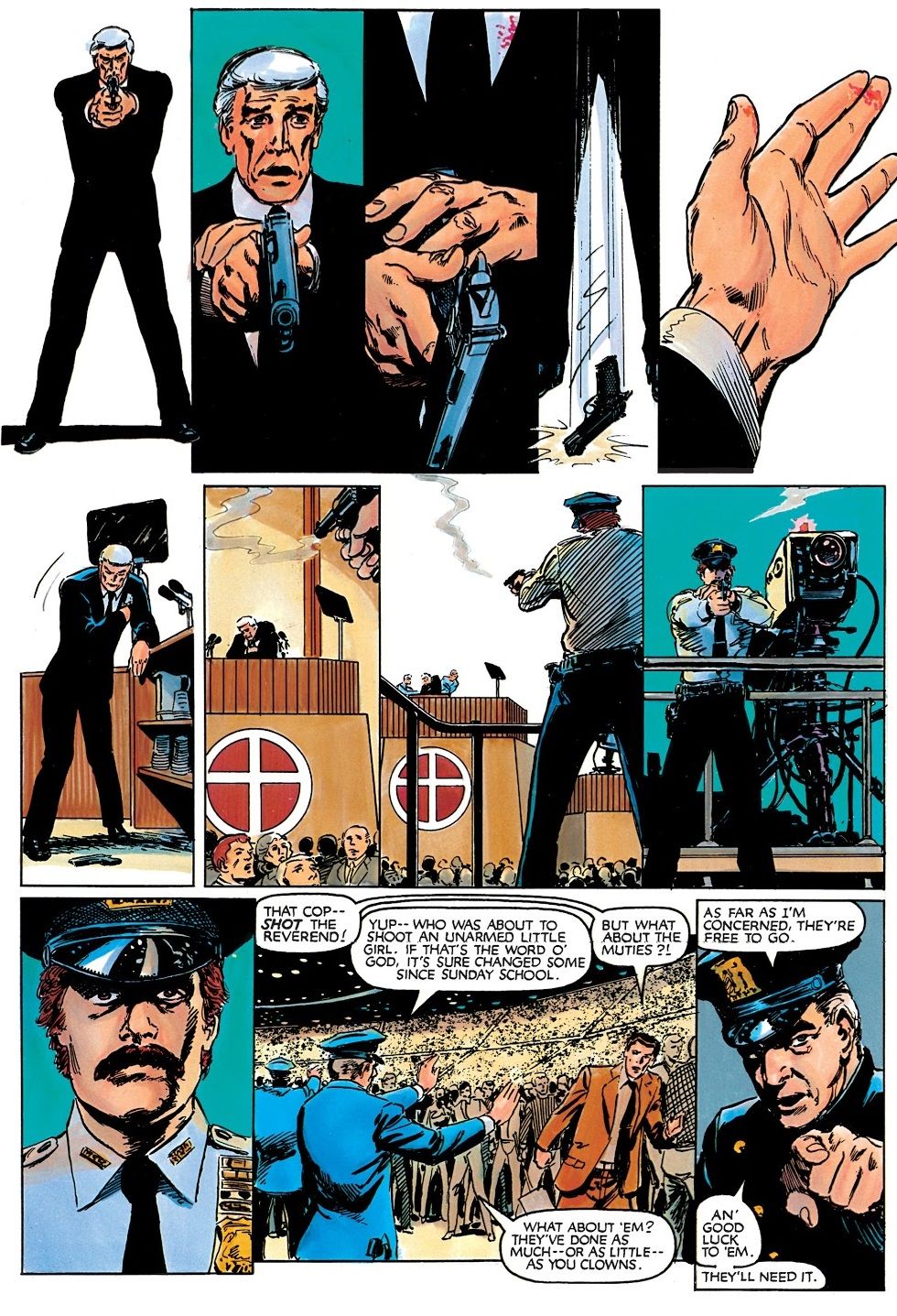You voted and now we continue our countdown of your votes for the top original graphic novels of all-time! These are graphic novels that were not serialized as comic books before they were released as graphic novels.
Enjoy!
3. Marvel Graphic Novel #1: The Death of Captain Marvel (1982)
Jim Starlin was recruited back to Marvel to handle the launch of their graphic novel program with a story where Captain Marvel, a character that Starlin had a famous run on during the 1970s.
Starlin's father was slowly dying himself of cancer at the time, so Starlin's handling of Captain Marvel's death had an extra bit of poignancy. Rather than dying in some great big cosmic battle, Mar-Vell instead was dying from cancer. The superheroes of the world came together to try to save him, but it was to no avail.
Slowly, they all said goodbye to him, including a particularly sweet moment between Rick Jones and Mar-Vell, who had once essentially shared a body. Spider-Man has a fascinating moment where the death hits him harder than the others, likely due to his past with Ben Parker and Gwen Stacy.
As Mar-Vell dies, he is visited by Thanos, who was also dead at the time, and Thanos helps his old foe become acquainted with Death herself. It's a touching way to add some fantastical elements to a very moral death....
It was great to see Starlin get the chance to say goodbye to the character that launched his illustrious comic book career as a writer/artist.
Page 2: [valnet-url-page page=2 paginated=0 text='The countdown concludes with #2-1!']
2. Batman: The Killing Joke (1988)
The Killing Joke is a remarkable one-off story by Alan Moore and Brian Bolland that works as basically a Joker origin story ("basically" because it has never been officially determined that this version of the Joker's origin story is the TRUE origin of the Joker), showing events that turned a decent enough guy down on his luck into the madman known as the Joker.
The Joker looks at his own circumstances and develops a theory - he became the Joker because, in effect, he had one really bad day. Therefore, could he break a good man by giving THAT man just "one bad day," as well? The man that the Joker chooses to test his theory on is Commissioner Gordon, which leads to one of the most (in?)famous sequences in DC Comics history...
We then see how the Joker becomes the Joker in the past while we intercut with the modern day Joker torturing Gordon. Batman rescues Gordon but we see that the Joker did not win - he did not break Gordon...
However, can Batman bring himself to just bring the Joker in one more time after what the Joker did today? When the two men share a joke, is it really the final joke that they'll ever share?
Bolland took a long time to draw this series (well worth the wait) so this project would be difficult to be any more hyped than it was when it finally came out (Alan Moore doing a Batman graphic novel with Brian Bolland?!?!) and yet it still managed to exceed the hype.
1. Marvel Graphic Novel #5: God Loves, Man Kills (1982)
In this classic graphic novel by Chris Claremont and Brent Anderson, the X-Men are forced to team up with Magneto when they run afoul of the anti-mutant religious zealot Reverand Stryker. Stryker ends up kidnapping Cyclops and Professor Xavier and the X-Men and Wolverine go to rescue them and since they have teamed up with Magneto in this fight, they are more willing to use...extreme measures.
Instead of a larger battle on live television, though, the X-Men essentially win the day through vigorous debate. After Stryker denounces Nightcrawler as non-human, Kitty retorts, "More human than you! Nightcrawler's generous and kind and decent! He had every reason to be bitter, every excuse to become as much of a demon inside and out, but he decided he'd rather learn to laugh instead! I hope I can be HALF the person he is, and if I have to choose between caring for my friend and believing in YOUR God...then I choose...m-my friend!" Nice. Eventually, Stryker's inhumanity rears its ugly head and the X-Men are saved.
Powerful stuff.
This really influenced the next decade of X-Men comic books, as the more mature themes introduced in this comic were slowly worked into the normal continuity.

